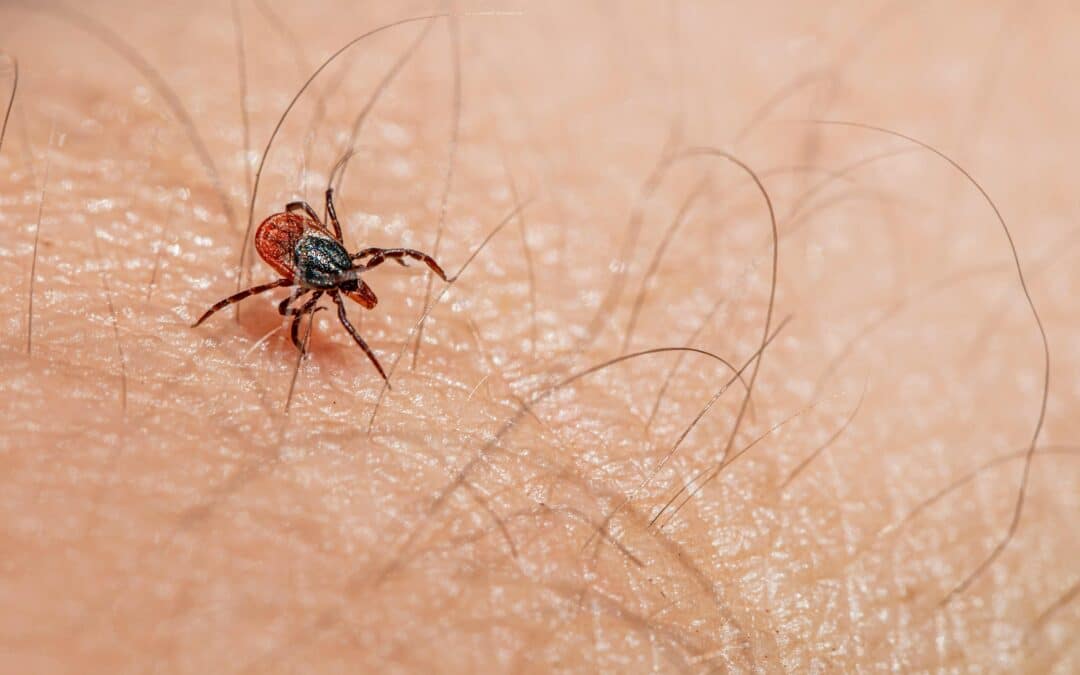Flea and Tick pest control can disrupt the peace of your Las Vegas home, transforming your sanctuary into an itchy battleground. Beyond the constant annoyance of bites and scratching, these pests pose a serious health risk for both humans and pets. Diseases like Lyme disease and Rocky Mountain spotted fever can be transmitted through tick bites, making proactive tick pest control essential. Here’s a comprehensive guide to tackling flea and tick infestations, creating a safe and pest-free environment for you and your furry companions.
Fleas and ticks are not just nuisances; they’re potential health hazards. Flea bites can cause intense itching, irritation, and allergic reactions in pets and humans alike. Fleas can also transmit tapeworms, which can be particularly dangerous for young children and pets. Ticks, on the other hand, can transmit a range of diseases through their bites. Lyme disease, for example, can cause flu-like symptoms, fatigue, and joint pain. Rocky Mountain spotted fever can cause fever, rash, and muscle aches. In severe cases, these diseases can lead to serious health complications.
The warm climate and dry summers of Las Vegas can provide a suitable habitat for both fleas and ticks, making year-round vigilance essential. By taking a proactive approach to flea and tick control, you can protect yourself, your pets, and your Las Vegas home from these unwanted guests.
Las Vegas Fleas and Ticks: A Comprehensive Overview
Las Vegas’ warm climate and dry summers create ideal breeding grounds for fleas and ticks, particularly in areas with limited rainfall. These bloodsucking pests thrive in warm temperatures and can survive for long periods without a host. Fleas are most active during the spring and summer months, but they can remain a problem year-round indoors, especially in homes with central heating and air conditioning that maintain consistent temperatures. Ticks, on the other hand, can be active year-round in Las Vegas, with peak activity typically occurring in the spring and fall. However, even during the colder winter months, tick encounters can still occur in protected areas like wooded areas, tall grass, and around rock formations.
- Fleas: These tiny, jumping insects thrive on blood meals from pets and humans. Flea infestations cause intense itching, irritation, and allergic reactions. More importantly, fleas can transmit tapeworms, particularly dangerous for young children and pets.
- Ticks: Ticks are arachnids that latch onto their hosts and feed on their blood. While some tick bites are harmless, others can transmit serious diseases like Lyme disease and Rocky Mountain spotted fever. Tick populations are rising across the United States, including in Las Vegas, making tick control a growing concern.
Flea and Tick Infestation: How They Invade Your Las Vegas Home
These unwanted guests can enter your Las Vegas home in various ways, most commonly through your pets:
- Pets: Your furry friends can easily pick up fleas and ticks outdoors, unknowingly bringing them inside on their fur.
- Wildlife: Rodents, such as mice and rats, can also carry fleas and ticks into your home.
- People: While less common, ticks can latch onto clothing or shoes when spending time outdoors in tick-infested areas.
Creating a Flea and Tick-Free Oasis in Your Las Vegas Home
A multi-pronged approach is most effective in combating flea and tick infestations:
- Treat Your Pets: Use veterinarian-approved flea and tick medication on your pets year-round, even during the colder Las Vegas months. Regular baths with medicated shampoo can also help control flea infestations.
- Treat Your Home: Vacuum carpets, furniture, and pet bedding thoroughly and frequently. Wash pet bedding in hot water to kill fleas and eggs. Consider professional pest control services for severe infestations.
- Target Your Yard: Las Vegas’ dry climate can still harbor ticks, especially in shady areas with tall grass and weeds. Address these areas by:
- Yard Maintenance: Keep your lawn mowed and edged. Remove leaf litter and debris where ticks might hide.
- Tick Control Products: Consider applying pet-safe tick control products to your yard, following manufacturer’s instructions carefully.
- Preventative Measures:
- Regular Inspections: Regularly check your pets for fleas and ticks, especially after spending time outdoors. Early detection is crucial for preventing larger infestations.
- Light Colored Clothing: When venturing outdoors in tick-infested areas, wear light-colored clothing that makes it easier to spot ticks crawling on you.
- Insect Repellent: Use insect repellents containing DEET or picaridin on both yourself and your pets when spending time outdoors.
- Addressing Wildlife: If you suspect wildlife is bringing fleas and ticks into your home, consider humane wildlife exclusion methods to prevent them from entering your property.
Tick Removal and Disease Prevention
If you find a tick on yourself or your pet, it’s crucial to remove it promptly and properly. Here’s what to do:
- Use Fine-Tipped Tweezers: Grasp the tick as close to the skin as possible and pull straight up with steady, gentle pressure. Avoid squeezing the tick’s body, as this can increase the risk of disease transmission.
- Clean the Bite Area: Disinfect the bite area with rubbing alcohol or antiseptic solution.
- Monitor for Symptoms: Be aware of potential tick-borne disease symptoms like fever, rash, or muscle aches. Consult a doctor if you experience any of these symptoms.
Professional Pest Control: For Extensive Infestations
If DIY methods prove ineffective, or you’re dealing with a severe flea and tick infestation, consider professional pest control services in Las Vegas. These professionals have the knowledge, experience, and specialized products to effectively eliminate fleas and ticks from your home and yard.
Protect Yourself and Your Pets from Fleas and Ticks in Las Vegas
By implementing these control and preventative measures, you can establish a secure environment for yourself and your pets. Always stay alert. Regular pet checks, yard maintenance, and preventive measures are essential for protecting your pets from flea and tick infestations.

